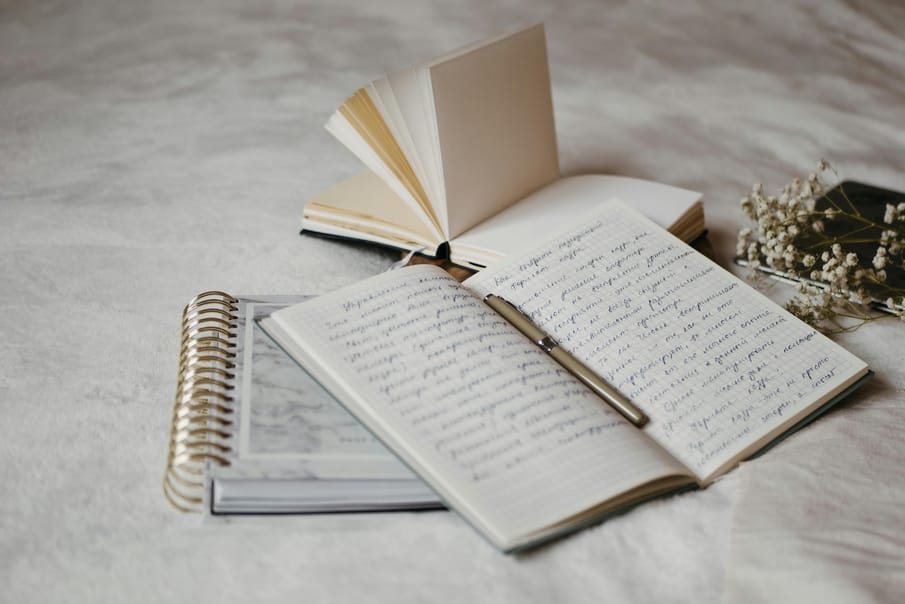Tips and poetry exercises for beginners who are trying to find their writer's voice
You might imagine that poetry isn’t for people like you. You might even have a picture in your mind of what a ‘real’ poet looks like – a pensive figure wielding a feather quill, or a confident speaker spitting rhymes under the spotlight.
But the truth is that everyone can be, and arguably already is, a poet.
The idea that poetry must adhere to archaic rhyming schemes or specific structures is outdated. While there is certainly value in learning new techniques to strengthen your work, the underlying purpose of poetry is self-expression. It’s a way to communicate your perspective on the world, often in ways that regular prose simply doesn’t allow. When it comes to poetry, the beauty is that anything goes – and the sooner you free yourself on the page, the more exciting the process becomes!
But how can you tap into your personal truth, and turn it into a poem? Let us share some tips on how to get started…
Let go of the ‘shoulds’
You likely have a preconceived idea of what poetry is ‘supposed’ to look like. But the truth is that rhyming, long words, complicated sentences, and strict verses don’t have to feature in your work if that’s not your style. You might find that free verse gives you complete freedom to let your words flow naturally. On the other hand, you might realise that rhyming connects you with a part of your experience that feels really authentic. However you write, make sure you’re writing for you, and not for the way you think it will be perceived.
Write about the everyday moments
There’s a common misconception that all poetry must be deep, heavy, and profound, but poetry can be about anything that matters to you. The way your partner kisses your forehead when you’re sad. The relief of receiving an email about something that was making you anxious. The quiet comfort of finding a Netflix series to keep you occupied as you grieve. If it’s real to you, it’s worthy of poetry.
Own your truth
Being authentic in poetry doesn’t mean you have to expose yourself and dump all your trauma on the page – especially if you’re not ready to. It’s more about allowing yourself to say what is naturally asking to be said, in a way that feels true. This means getting comfortable with your personal perspective on the world, and acknowledging that all your experiences, feelings, and observations about the world are worth sharing – if you choose to. You don’t need to have lived through an extraordinary tragedy to have something worth saying. In fact, the ordinary moments are often where the most honest poetry lives.
Take the leap
Whether you’ve dabbled in poetry before, or you’re terrified of putting pen to paper, you don’t need anyone’s permission to call yourself a poet. You don’t need to publish a book or win a competition, or even share your work with another human being. If you write poetry, you’re a poet.
The unique way that you experience life, any hardships you’ve endured, or mental ups and downs along the way that you’ve learned from – how you communicate all of that through words is what combines to make the magic of you, and that is the basis of captivating poetry.
So, maybe it’s time to stop waiting for the ‘right’ moment or the ‘right’ level of skill. Maybe it’s time to just begin.
If you’re feeling the urge to try writing poetry, start exactly where you are right now. Don’t worry about creating something perfect – worry about creating something honest. Your first poem might be terrible. Your second might be worse. But your third? Your 10th? Who knows what you might discover about yourself in the process.
List writing: The beautiful thing about poetry is that there are so many ways to approach it. List poems are exactly what they sound like – brilliant for capturing the details of a moment or feeling. You might write about “Things I notice when I’m anxious,” or “Reasons my dog makes me smile.”
Micro poetry: Think just two or three lines that pack a punch, capturing a feeling in a single breath. Try writing a micro-poem that sums up the most important life lesson you’ve learned recently, or an emotion you’re struggling to make space for.
Tell a story: Some poems follow a narrative arc, painting a picture of something happening, which can draw the reader in. It could be something that happened to you, a fictional story that illustrates an emotion you’re feeling, or a memory you’re still trying to process.
The best writers are great readers. Head to happiful.com/poetry-prize to read our 2025 winning and shortlisted poems, as well as exclusive Q&As with the poets behind them. And, if you're feeling brave enough, why not submit your own poem to our Happiful Poetry Prize 2026?


Comments